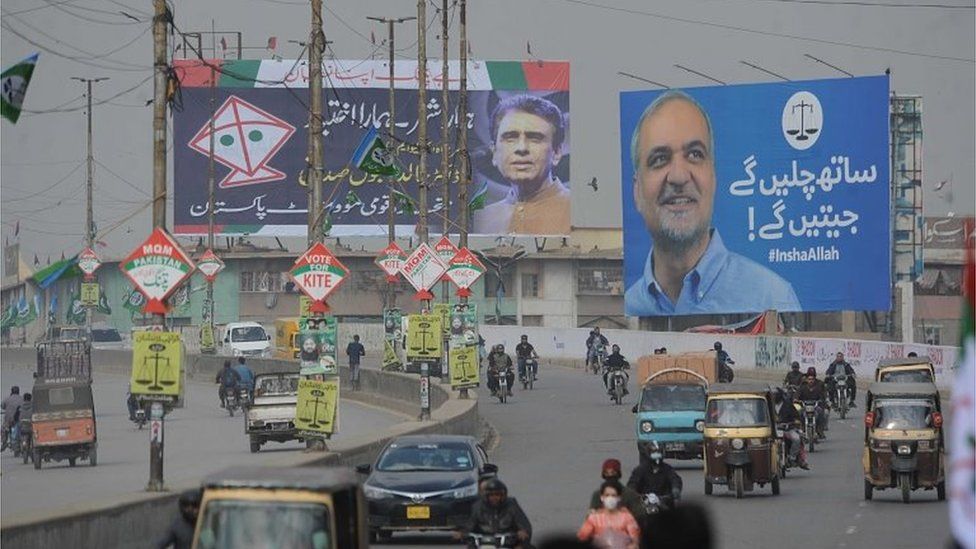-

-
-
Loading

Loading

Millions of Pakistanis are heading to the polls today to vote for a new government amidst various challenges such as high inflation, increasing violence, and allegations of rigging. The election takes place almost two years after the former prime minister, Imran Khan, was removed from office following a no-confidence vote. Khan, who later faced corruption charges and is disqualified from running, is barred from standing. This election is seen as the least credible in Pakistan's history, according to many analysts. Strict regulations regarding election coverage, including restrictions on candidates, campaigning, and opinion polls, will remain in effect until the end of voting at 5:00 PM local time. Results must be released within two weeks. With a total of 128 million registered voters, almost half of them under 35 years old, there is plenty at stake for the candidates. However, choosing candidates from Khan's party, Pakistan Tehreek-e-Insaf (PTI), has become challenging since the party has been banned from using their cricket bat symbol, which is crucial in a country where a significant portion of the population cannot read. The PTI claims that other measures have been taken to sideline their candidates, including imprisonment, rally bans, and driving them underground. Khan himself is currently serving a 14-year prison sentence on corruption charges and still faces over 170 charges in separate cases. The PTI alleges interference by Pakistan's influential military, which Khan is believed to have fallen out with before his downfall. On the other hand, people will have the opportunity to vote for Nawaz Sharif, the leader of the Pakistan Muslim League (Nawaz) (PML-N). Although Sharif has faced his fair share of political challenges, including a military coup in 1999 and a shortened third term in 2017, he recently returned from self-imposed exile and had his lifetime ban on holding office lifted, allowing him to run for an unprecedented fourth term. It remains uncertain if any party can secure a majority of the 336-seat National Assembly, which requires 169 seats. The country's economic difficulties, amplified by severe floods in 2022, have heavily impacted millions of Pakistanis, who struggle with soaring inflation and the inability to pay their bills. High levels of violence across the nation are also a significant concern. According to the Center for Research and Security Studies, 2023 witnessed a third consecutive yearly increase in violent incidents, resulting in the highest number of casualties since 2017. Participating in politics itself carries risks, as evidenced by two attacks on candidates' offices in Balochistan province, resulting in over 28 deaths, just a day before the election. Officials are on alert for potential attacks on voting day. The Election Commission of Pakistan has identified half of the 90,675 polling stations as either "sensitive" or "most sensitive" based on the region's security situation and history of electoral violence. Many analysts believe that a high voter turnout will greatly influence the PTI's chances in the election. Voters will prioritize addressing and assigning blame for the country's economic crisis.